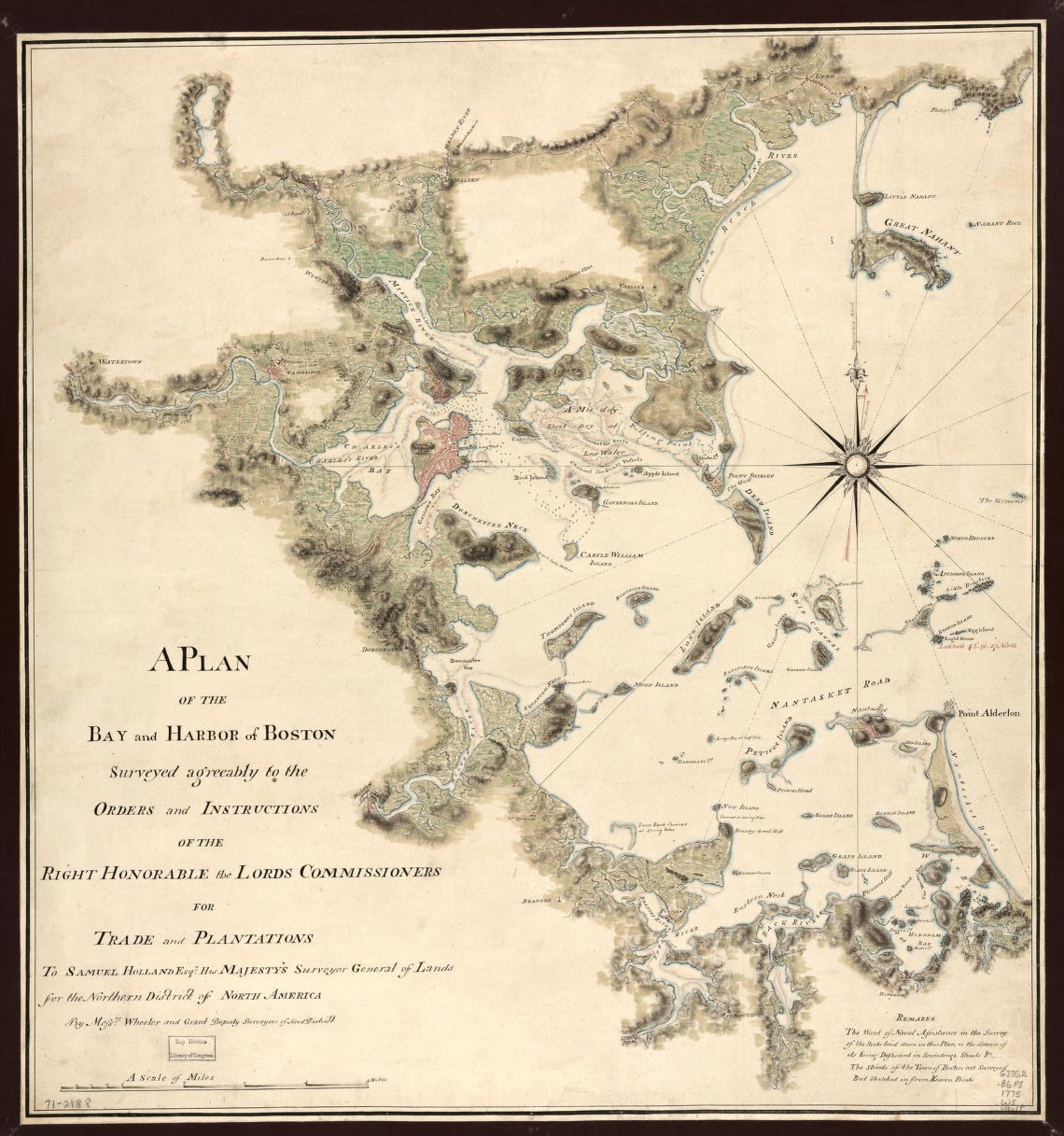Maritime Participation in Boston
Throughout the eighteenth century, participation in the maritime economy
of colonial Boston had a significant effect on the society of the time, which
in turn affects our society today. In the early 1700s, a complex system had
developed to construct and load ships.1 This system, which linked numerous
different groups together - each fulfilling a specific task to create something
- was a predecessor to industrialism, a movement that laid the groundwork for the
modern consumeristic society. In addition, the supply chains which developed to
transport goods to consumers reflected those in use today.
The maritime economy of Boston was a community venture. Around the beginning of
the 17th century, one third of all adult males owned part of a vessel, and in
1770, exports amounted to 11 percent of the region’s income.2,3 Among the effects
of this widespread participation were that some individuals rose to the top of the
economy, another foreshadowing of modern capitalist goals of rising in society.
Maritme participation also signaled a shift away from dependence on agriculture as
the primary source of income in a region.4 Shipping had a considerable
influence on society because of the atmosphere of individual participation prevalent in
the city.
- Steven J. J. Pitt, "Building and Outfitting Ships in Colonial Boston", Early American Studies 13, no. 4 (Fall 2015): 882-3, accessed March 5, 2022, https://www.jstor.org/stable/44630808.
- James A. Henretta, "Economic Development and Social Structure in Colonial Boston", William and Mary Quarterly 22, no. 1 (January 1965): 87, accessed March 5, 2022, https://www.jstor.org/stable/1920768.
- Peter H. Lindert and Jeffery G. Williamson, "American Colonial Incomes", Economic History Review 69, no. 1 (Febuary 2016): 60, accessed March 5, 2022, https://www.jstor.org/stable/43910400.
- James A. Henretta, "Economic Development and Social Structure in Colonial Boston," William and Mary Quarterly 22, no. 1 (January 1965): 76, accessed March 5, 2022, https://www.jstor.org/stable/1920768.
